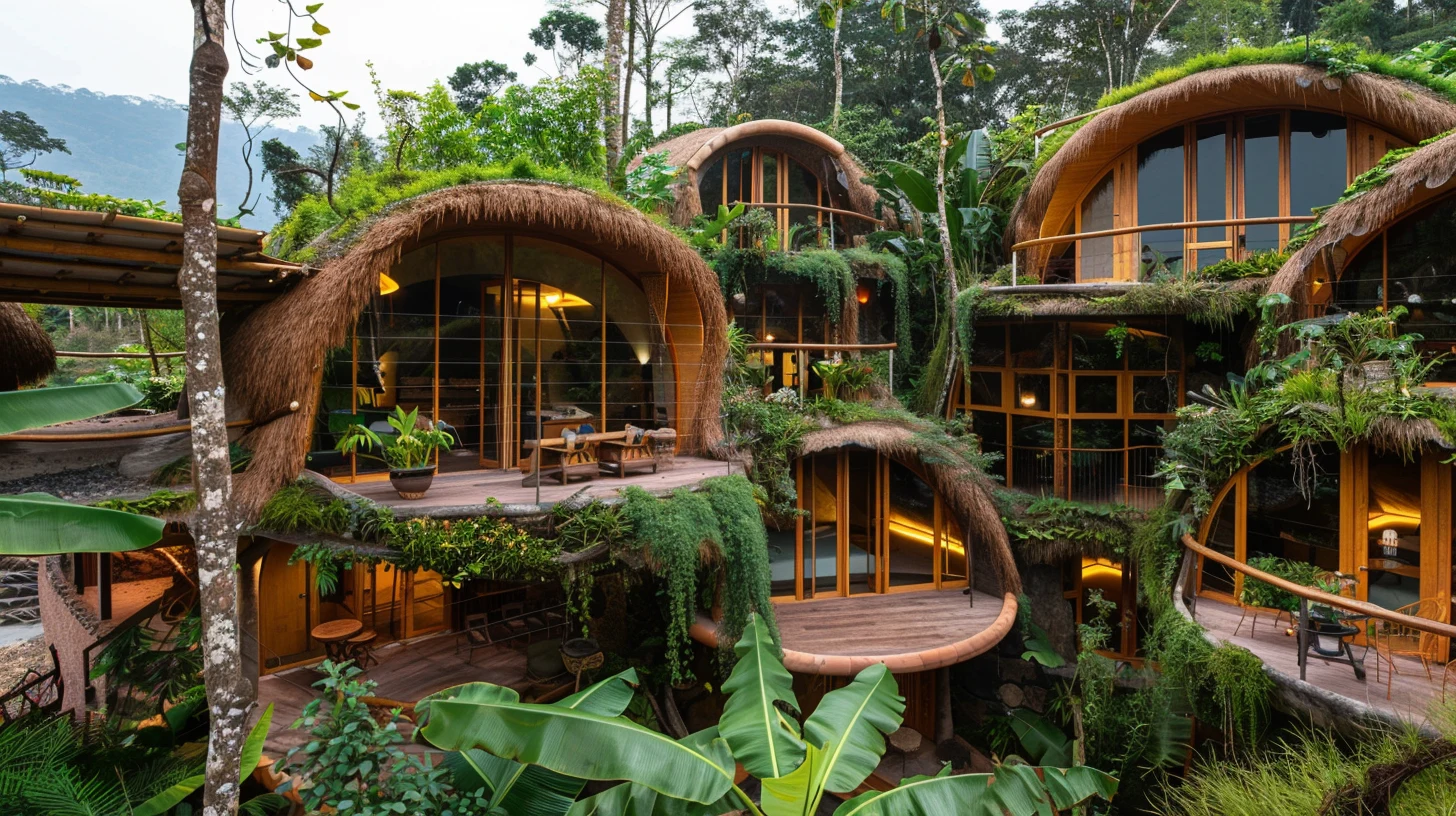Sustainable Tourism Guide for Lodging Providers 2024
1 July 2024
Share this article on Social Networks:
In the modern era, sustainable tourism is becoming a central theme for hotel owners, B&Bs, and vacation rentals. It’s not just a trend, but a necessary approach to reduce the environmental impact of tourism activities, improve the reputation of accommodations, and attract an audience increasingly attentive to environmental issues.
This guide will provide a comprehensive overview of what sustainable tourism is, why it’s important, and how property managers can implement it effectively. Follow us on this journey towards more responsible hospitality in line with Agenda 2030.
Sustainable tourism is based on the principles of environmental, social, and economic sustainability, with the aim of preserving natural and cultural resources for future generations. This involves reducing pollution, conserving natural resources, and respecting local cultures.
Moreover, sustainable tourism supports the local economy by using local resources and labor, ensuring that economic benefits are equitably distributed.
This approach applies to various types of tourism, including the growing phenomenon of slow tourism, and promotes inclusive and lasting development. By protecting natural and cultural heritage, sustainable tourism encourages responsible and respectful tourism practices, ensuring that tourism continues to be a source of well-being for local communities and the environment.
Adopting sustainable tourism is not just a matter of trend, but a necessity to address environmental and social challenges. Integrating sustainable practices into tourism activities can significantly contribute to the goals of the 2030 Agenda for Sustainable Development, which aims to ensure a more equitable future for all.
Tourism is one of the largest and fastest-growing industries globally, and it has a significant impact on local communities and natural ecosystems. Therefore, adopting sustainable tourism practices is crucial to mitigate negative effects and promote harmonious and lasting development.
Recognition and reputation
Implementing sustainable tourism can significantly improve the reputation of your properties. Today’s travelers are increasingly aware and prefer to support businesses that demonstrate a concrete commitment to sustainability. Obtaining sustainability certifications, such as the Green Key or EarthCheck label, can be a great competitive advantage.
Furthermore, adhering to international standards and collaborating with organizations that promote responsible tourism can lead to greater recognition from the tourism sector and the global community, thus increasing the visibility and attractiveness of the lodging.
Adopting sustainable practices is fundamental for lodging providers that want to stand out in the market and contribute positively to the environment and society. Here are some of the most effective practices that can be implemented:
- Energy efficiency: Invest in technologies that reduce energy consumption, such as LED lights, motion sensors for lighting, efficient heating and cooling systems. Also using renewable energy sources, such as solar panels or wind turbines, can significantly reduce environmental impact.
- Water management: Install water-saving devices such as low-flow faucets, dual-flush toilets. We recommend implementing rainwater collection and reuse systems for irrigation and offering guests the option to avoid daily towel and sheet changes to further reduce water anddetergent consumption.
- Waste reduction: Eliminate the use of single-use plastics and encourage the use of reusable materials. For example, ensure that your aparthotel, boutique hotel, or your eco-friendly hotel is equipped with everything necessary for proper waste management. Also create visible and easily accessible recycling stations for guests and staff.
- Recycling: Create visible and easily accessible recycling stations for guests and staff. Educate guests on the importance of recycling and provide clear information on how to properly separate waste.
- Support for the local economy: Collaborate with local suppliers to promote zero-kilometer products, reducing the environmental impact of transport and supporting the local economy. Offer menus with organic and seasonal ingredients.
- Authentic experiences: Promote activities that enhance local culture and traditions, thus improving the guest experience, such as visits to farmers’ markets, craft workshops, and guided tours by residents.
- Certifications: Obtaining recognized sustainability certifications, such as Green Key, EarthCheck, or ISO 14001, can demonstrate commitment to sustainable practices and attract an audience sensitive to these issues. These certifications require compliance with rigorous environmental and social standards and can improve the credibility and reputation of the lodging.
- Quality labels: Adhere to eco-quality programs that offer training, support, and recognition for sustainable practices. These labels can be used in marketing to distinguish the lodging from competitors.
- Education: Inform guests about the sustainable practices adopted by the lodging and how they can contribute during their stay. This can be done through informative brochures, signage in rooms, and information sessions upon arrival.
- Involvement: Offer opportunities for guests to participate in green initiatives, such as volunteer programs, eco-tours, and conservation activities. Actively involving guests makes them more aware and encourages them to further support sustainable practices.
- Partnerships: Establish collaborations with local entities, non-governmental organizations, and environmental associations to develop and implement sustainable projects. These partnerships can include conservation of natural areas, environmental education programs, and community development projects.
- Support: Participate in local sustainability initiatives and support events and campaigns that promote environmental conservation and sustainable development. This not only strengthens ties with the community but also demonstrates the lodging’s commitment to a sustainable future.
In recent years, attention to sustainability in the tourism sector has grown exponentially, pushing many lodging providers to seek solutions to reduce their environmental impact and promote more eco-friendly practices.
The adoption of innovative tools and technologies plays a fundamental role in this process, offering not only the possibility of reducing the ecological footprint but also improving operational efficiency and offering more conscious stay experiences to guests.
Renewable energies
The adoption of renewable energies, such as solar, wind, and geothermal, represents a fundamental step to significantly reduce the environmental impact of lodgings.
For example, the installation of solar panels not only allows for the production of clean electricity but also for heating water, thus contributing to more sustainable resource management. Similarly, the use of wind turbines to generate energy offers an ecological and renewable alternative, harnessing the power of wind to power the property’s various activities.
Geothermal systems also play a key role, using the natural heat of the ground for heating and cooling environments. These investments, in addition to representing an advantage for the environment thanks to the reduction of CO2 emissions, can lead to significant long-term energy savings.
The integration of these solutions not only helps create a more sustainable tourism model but also contributes to raising awareness among guests and employees about the importance of adopting eco-friendly practices.
Technological solutions
The integration of advanced technologies in your property is fundamental to optimize energy consumption and promote sustainability. Energy Management Systems (EMS) allow for real-time monitoring and control of energy use, while intelligent sensors automatically regulate lighting and temperature based on the presence of people and environmental conditions, reducing waste.
Digital platforms such as Greenview and Measurabl simplify sustainable management, monitoring energy consumption, waste management, and carbon emissions. These tools not only improve operational efficiency but also demonstrate a strong commitment to environmental sustainability.
Furthermore, offering mobile applications to guests to manage their stay in a sustainable way is a great advantage. These apps allow for controlling room lights and temperature and provide information on the property’s ecological practices, actively involving guests and promoting more responsible and sustainable tourism.
Applications for guests
Offering mobile applications to guests represents an innovative way to promote a sustainable stay. Through these apps, guests can conveniently control the lights and temperature of their room, thus optimizing energy consumption according to their needs.
Moreover, the applications can provide access to detailed information on the sustainable practices adopted by the property, increasing visitor awareness and engagement.
The apps can also offer opportunities to participate in green initiatives during the stay, such as recycling programs, ecological activities, or donations to local environmental projects. This interaction not only improves the guest experience but actively involves them in the property’s sustainability mission, creating a collaborative and responsible environment.
Marketing and communication of sustainability
Being transparent and authentic is fundamental: it’s important to clearly share the adopted sustainability initiatives, providing details on projects and results achieved. This can be done through sustainability reports published on the website or distributed during guests’ stays, allowing visitors to understand the positive impact of your actions.
Telling success stories and testimonials from customers who have appreciated sustainable practices can create an emotional connection and strengthen the property’s reputation. These stories can be disseminated through blogs, newsletters, and promotional materials, concretely showing how green initiatives have improved the guest experience and the surrounding environment.
Furthermore, using social media such as Facebook, Instagram, and Twitter is equally important to promote sustainable initiatives. Sharing captivating visual content, videos of green activities, and updates on new ecological practices can attract a wide and varied audience.
To ensure the success of sustainable tourism initiatives, in addition to the business plan, it is fundamental to measure and monitor the results obtained. Here are some effective ways to do this:
- Performance indicators: Define key performance indicators (KPIs) to monitor the effectiveness of sustainable practices. These can include energy consumption per guest, amount of recycled waste, water use, and CO2 emissions. Use these KPIs to track progress over time and identify areas for improvement.
- Continuous monitoring: Implement continuous monitoring systems to collect real-time data on the property’s environmental performance. This can be done through sensors and sustainability management software, which provide accurate and up-to-date data for making informed decisions and continuously improving ecological practices.
- Feedback: Collect feedback from guests on sustainable initiatives through questionnaires, online surveys, and reviews. Ask customers to evaluate the adopted green practices and suggest any improvements. This not only helps improve initiatives but also demonstrates the accommodation’s commitment to responding to guests’ needs and expectations.
- Evaluations: Use guest evaluations to identify strengths and weaknesses in sustainable practices. Analyze reviews to understand which initiatives are most appreciated and which can be improved. Integrate this information into the decision-making process to optimize sustainability strategies.
While implementing sustainable tourism practices is fundamental for the future of the sector, there are many other variables that managers of lodgings must manage daily.
Effective management of green initiatives, communication with eco-conscious guests, and optimization of daily operations in a sustainable key are essential to ensure an excellent experience for your guests and, consequently, the success of your properties.
Octorate is here to facilitate this task, offering innovative solutions that will help you navigate the dynamic world of sustainable hospitality. With tools such as Channel Manager, Booking Engine, PMS, Owner Portal, and Self check-in, Octorate can revolutionize the way you manage your eco-friendly properties, allowing you to save precious time that you can dedicate to further improving the sustainable experience of your guests.
Don’t miss the opportunity to elevate your business to the next level: book a free demo with Octorate today!
Book a Free Demo
Book a Demo to see how Octorate can simplify the management of your Hotel, B&B, Vacation rental, Apartment or Hostel.
Try Octorate for free!
Subscribe to an annual plan and take advantage of an exclusive offer, tailored for your property!
Share with:
Alin Grigoras
Book a Free Demo
Book a Demo to see how Octorate can simplify the management of your Hotel, B&B, Vacation rental, Apartment or Hostel.
Related articles:
New Integration: Octorate x Luckey by Sofia part of ISEO
Condividi l'articolo sui Social NetworkWe are excited to announce a new integration: Octorate joins forces...
Bed and Breakfast Name Ideas: How to Choose the Best in 2024
Share this article on Social Networks:In the world of hospitality and tourism, every detail matters, and...
Create the Perfect B&B Business Plan: The Ultimate Guide
Share this article on Social Networks:Opening a bed and breakfast can be a dream, but without good...








